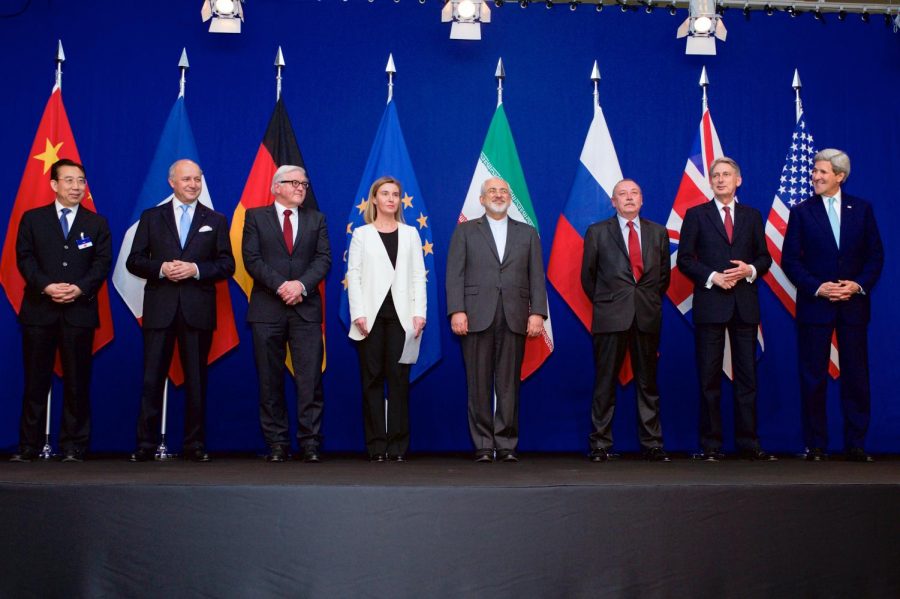Trump Administration Withdraws from Iran Deal: The Reaction
May 15, 2018
President Donald Trump announced that the United States will be withdrawing from the Iran nuclear deal, or the Joint Comprehensive Plan of Action (JCPOA), on Tues., May 8.
According to Trump, who has declared his intentions to pull out of the Iran deal since his 2016 campaign, the decision to leave the deal is due to it being “defective” and a failed, one-sided attempt at negotiation.
“It is clear to me that we cannot prevent an Iranian nuclear bomb under the decaying and rotting structure of the current agreement,” Trump said. “The Iran deal is defective at its core. If we do nothing we know exactly what will happen.”
One of the highest achievements of the Obama administration, the Iran deal was created in 2015 after building tensions between Iran and the world powers: the country allegedly intended to create nuclear weapons, though it claimed that its attempts were purely for peaceful purposes.
After countless meetings with the United States, the United Kingdom, China, Russia, and Germany, Iran declared it would limit its nuclear activities in exchange for the uplifting of financial sanctions that were crippling its economy. In the following few months after the deal’s creation, Iran reduced both its uranium stockpile (by 98%) and the number of centrifuges in Natanz, one of its primary facilities.
Considering the United States is such a huge part of the global economy, this decision to uphold sanctions, which would penalize American businesses from working with other foreign companies that had contacts with Iran, will certainly harm the already struggling Iranian economy.
“For Iran, it’s horrible for their economy,” economics instructor Shaun Waldron said. “Their economy is already in shambles anyway, but what this means that they are going to be further isolated from other countries; their economy is going to decrease.”
Trump’s anticipating that these sanctions will force the Iranian government into desperation, so the U.S. can negotiate a more beneficial agreement. However, this isn’t a certainty considering other economic powerhouses have not yet backed out of the deal.
“What Trump is hoping is that, because Iran’s economy will decrease, that they’ll be eager to please us so that they’ll make a deal that’s more in our favor,” Waldron explained. “I don’t know if that’s going to happen. The Europeans and China are still trading with Iran, so maybe it won’t hurt them as much as Trump is expecting.”
According to United States History instructor Joe Meyer, withdrawing could harm relations with European allies, America’s closest allies since World War 2.
“I think, if anything, the most troubling part is our allies that we negotiated this treaty with. How are they going to trust us in the future?” Meyer said. “Traditionally in American history and foreign policy, there was more of a continuation even when different parties took over. With Trump, he’s kind of blowing it up. It could cause a split that’s going to be very difficult to make up. ”
This unreliable reputation could be devastating for future negotiations, specifically possible peace negotiations with North Korea.
“If he makes a deal with Kim Jung-Un, how do you know that’s going to stick in five years? That’s the biggest issue,” Meyer further explained. “What’s going to happen with Iran and nukes, whether they’re going to start making them again, is hard to call because that’s kind of a secretive regime, but I’m more troubled about going forward making deals with people who trust us.”
Iranian citizens have expressed their anger at Trump’s decision by holding rallies throughout the country wherein citizens burned American flags and expressed anti-American sentiments on Fri., May 11.
Ahmad Khatami, an Iranian cleric who leads Friday prayers in Tehran, expressed such ideas suggested by Meyer. During his live sermon, Khatami denounced any future negotiations with foreign leaders as “they cannot be trusted.”




